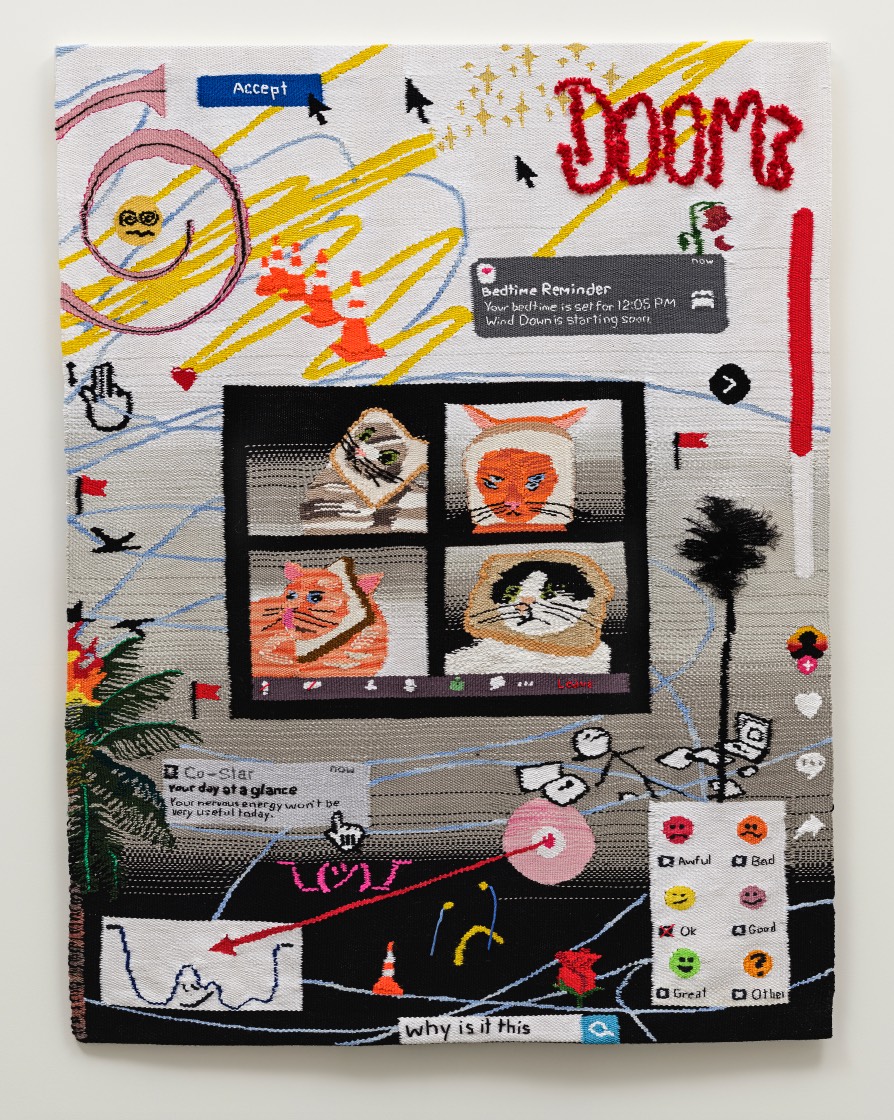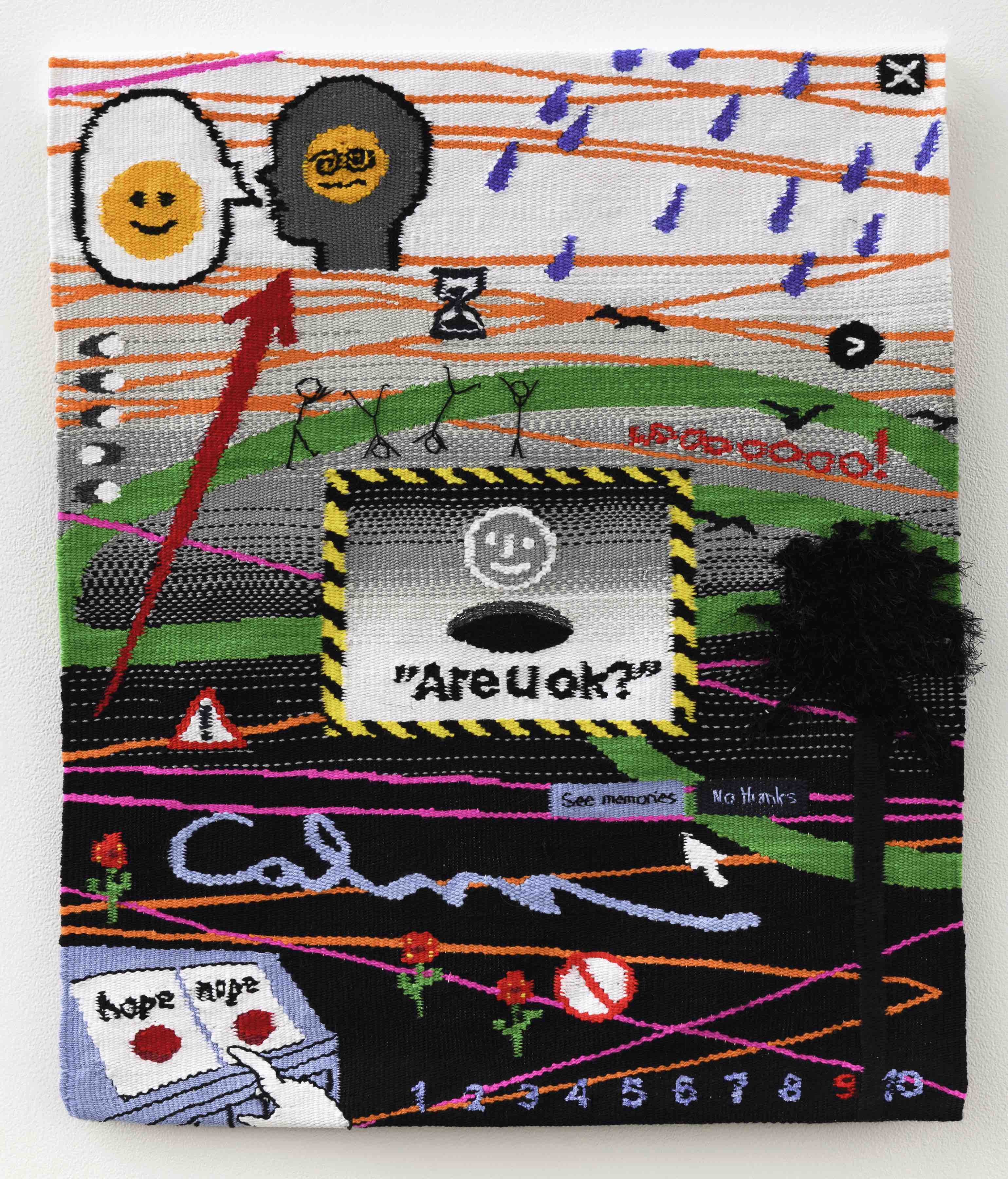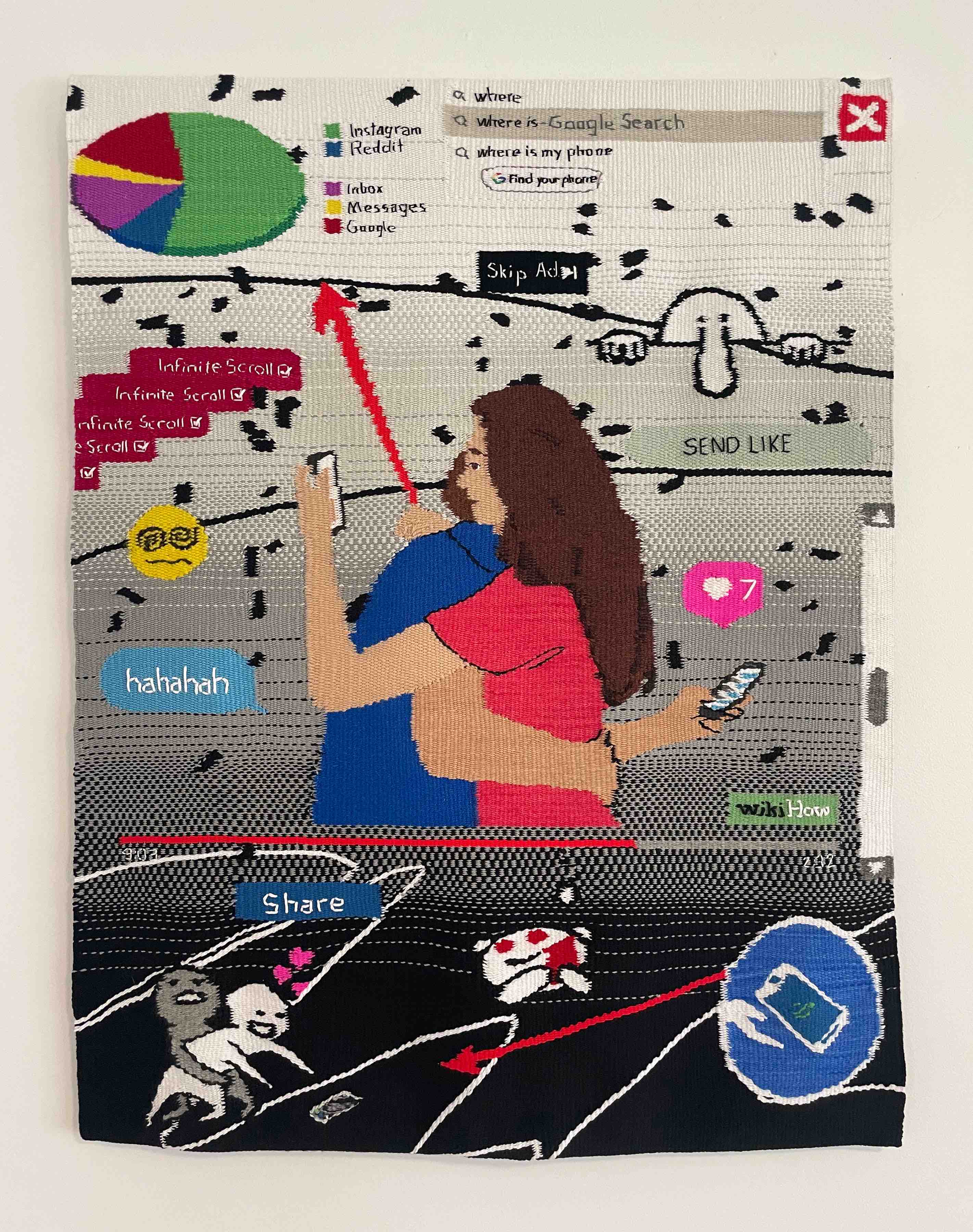It’s 9 a.m. on a Saturday morning, and you open up TikTok for “a few minutes” to check on the latest headlines while sipping coffee.
Suddenly, you realize that “a few minutes” has turned into a half hour, as you’re served an endless catalog of video after video about current events, international crises, global warming . . . you’ve been sucked into a vortex of negative news. Once you manage to escape from your phone’s vice grip on your attention, you notice you feel exhausted, anxious and overwhelmed.
“Kayla Mattes: DOOMSCROLLING,” a new exhibition at the Michigan State University Broad Art Museum, uses handmade weavings to unravel our addiction to digital culture. California-based artist Kayla Mattes explores the ephemeral concepts that keep us stuck to the web: memes, gifs, TikToks, apps and the quest for information to our most burning questions. Through a playful and humorous — yet critical — lens, the exhibition presents different musings on our relationship with digital culture.
Though we might think of them as opposites, the underlying logic of computers and technology traces its roots to analog processes of making — like weaving. This relationship is formative to Mattes’ work and is why she explores the digital sphere through weaving.
“I’m thrilled to collaborate with Mattes,” said MSU Broad Art Museum Assistant Curator Rachel Winter. “The joy and humor in her work provide both a moment of respite from daily life and a way to think through existential questions. Most of the works featured in the exhibition were created specifically for “DOOMSCROLLING,” and I hope visitors look closely at the many details that make up these handmade weavings.”
The early 19th-century Jacquard loom influenced the development of early computers. Both share a binary logic — while weavings are made from the intersections and overlaps between the warp and weft, or the vertical and horizontal elements on a loom, computers operate based on a binary logic of zeroes and ones. Through algorithmic-like processes, these machines generate their final products.
“Weaving has historically been considered 'women’s work,' while technology and data are male-dominated fields, even though the first algorithm was written by a woman: Ada Lovelace,” Winter said. “Now, technology is an omnipresent force in our lives, but we often forget how this came to be.”
Through Mattes’ work, weaving invites us to slow down and look closely — actions that feel counterintuitive to the hurried pace of the internet and our lives. Moments of humor are embedded in her tapestries, which help us respond to pressing existential questions about technology and the current state of the world. The artist asks us to stop doomscrolling, look closely and rethink the way the digital sphere shapes our daily life.
“I’m honored to be presenting my first institutional solo exhibition at the MSU Broad Art Museum,” said Mattes. “Creating the body of work for the show has been a transformative time in the studio for me, and I’m looking forward to sharing it with the public.”
“Kayla Mattes: DOOMSCROLLING” is on view from Feb. 3 to Aug. 18, 2024.
The exhibition is organized by the Eli and Edythe Broad Art Museum at Michigan State University as part of the Artist Project Series and curated by Rachel Winter, assistant curator, with support from Laine Lord, museum practicum student and curatorial intern. Support for this series is provided by the MSU Federal Credit Union.


